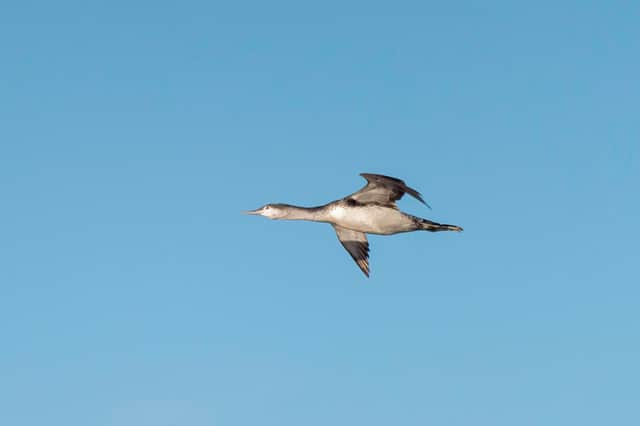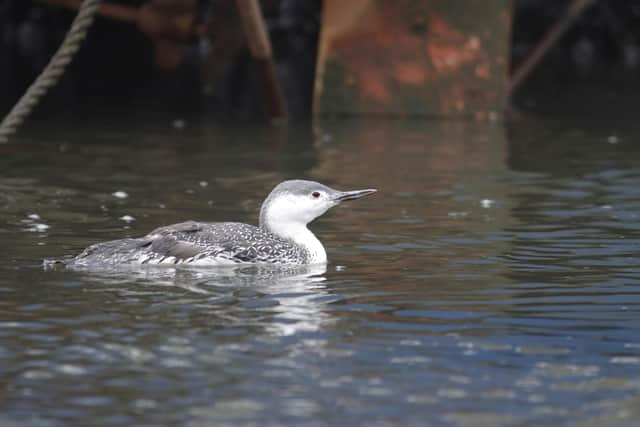NATURE NOTES: Diving into the history of the Common Loon


In Britain we don’t call them Loons, we call them Divers. The Common Loon that features in the film is known here as the Great Northern Diver. I suppose in Britain we prefer the name Diver, because Loon has another meaning (fool) and we would not want to lumber a bird as majestic as this with such an insulting name.
But Loon was used in Britain about 100 years before Diver was used for this family of birds. Loone was first used for Diver in 1634 and is a corruption of the old Norse word lómr for Red-throated Diver. The word translates as moaner, referring to the loud
Advertisement
Hide AdAdvertisement
Hide Adwailing calls of these birds. There are five species of Diver or Loon in the world and they’ve all been seen in Northumberland. Two of them are very rare, the Pacific Diver has only occurred once, at East Chevington nature reserve in Druridge Bay and the White-billed Diver is seen in very small numbers annually. Great-northern and Black-throated Divers are more common, but still scarce and are usually seen outside of the breeding season on, or close to the sea.


The Red-throated Diver is the most commonly occurring diver here, it can be seen offshore in most months but numbers really pick up in the autumn as birds returning from the breeding grounds further north gather up off our coast. When they arrive back in late summer or early autumn, many of the adults are still sporting the red throat that gives them their name. They soon lose this as they moult into their more dowdy, grey non-breeding plumage. A scan of the sea with a pair of binoculars in somewhere like Druridge Bay should produce some Red-throated Divers at this time of year, I counted over 30 last week not too far offshore.
All of our wintering Divers breed further north. Two species breed in the UK, The Red-throated
Diver breeds on small freshwater pools as close as central Scotland and the Black-throated a little further north and west, usually on islands or the shores of lochs that hold plenty of fish to feed their broods. ‘Our’ great Northern Divers breed on Iceland and the White-billed Diver, or Yellow-billed Loon breeds on the Arctic coasts of Russia and Norway.
Advertisement
Hide AdAdvertisement
Hide Ad‘On Golden Pond’ isn’t the only film to feature the sound of Loons, they’ve added ‘atmosphere’ to a good few films over the years and that’s not surprising as they call of the Loon has a distinct,
haunting quality that has enchanted humans for centuries and is one of the most enigmatic in nature. As for the name, this may be unpopular with my fellow birdwatchers here in Northumberland but I prefer Loon to Diver. I might make a case for it’s re-instatement as the common name for this wonderful family of birds.
If you don’t get down to the coast to see the Loons this winter, ‘On Golden Pond’ usually features on the Christmas TV listings, tune in and have a listen to the Loons.